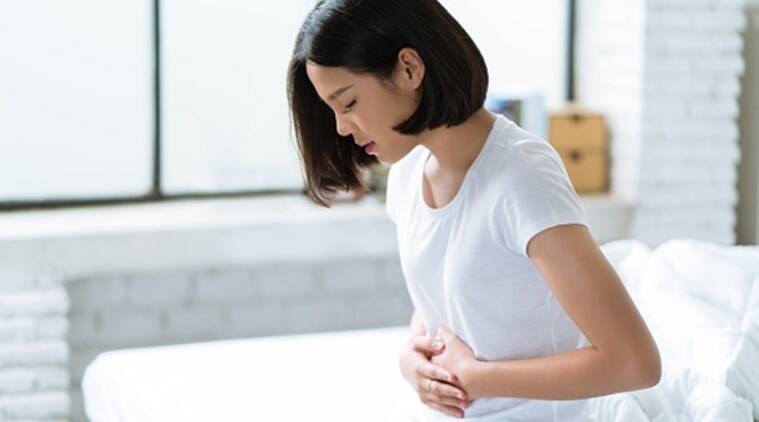What is PCOS?
The most frequent female health issue is polycystic ovarian syndrome, or PCOS. Cysts in the ovaries and a hormonal imbalance define this condition.
In most cases, the body needs both male and female hormones to function properly. Menopausal women with Polycystic Ovarian Disease are more likely to create excessive amounts of male hormones. Basic healthcare facilities can provide education and support to women with PCOS. The signs of this hormonal imbalance include hirsutism (excessive growth of facial hair), obesity, hair loss, male pattern baldness, acne, and irregular menstrual cycles, to name a few.
PCOS Facts
- Polycystic Ovarian Disease affects around 5-10% of reproductive-age women. As a result, less than half of women are diagnosed correctly and receive proper treatment.
- PCOS in India is also prevalent, where one in every five women are affected .
- Polycystic Ovarian Disease appears to be inherited. Women with a family history of the condition are more likely to be diagnosed with PCOS.
- Polycystic Ovarian Disease can affect a woman at any point after menarche, however it is most commonly diagnosed in women in their twenties or thirties, depending on her age.
- Insulin resistance is a big factor in the development of Polycystic Ovary Disease when your body doesn’t use insulin well. Premature ejaculation can be a common symptom of PCOS, due to the hormonal imbalances associated with the condition. The more insulin resistance you have, the more likely it is that you will get diabetes. Around 40% of women with Polycystic Ovarian Disease have either pre-diabetes or diabetes by the time they are 40 years old. Women with polycystic ovary syndrome (PCOS) often respond well to treatment with metformin, which makes insulin more sensitive.
- Polycystic Ovary Disease frequently causes infertility in women. Premature birth, gestational diabetes, miscarriage, and stillbirth are more common in women with Polycystic Ovarian Disease.
- Women with Polycystic Ovary Disease have a heart attack risk 4-7 times greater than that of women who do not have the condition, making it a serious health concern for them.
- Obesity affects almost half of women with Polycystic Ovarian Disease. Obstructive sleep apnea (OSA), which is a momentary interruption of breathing during sleep, may result from these women’s obesity. Women with PCOS can limit their weight by exercising regularly and adhering to a healthy diet.
- Polycystic Ovary Disease has been shown to have an impact on women’s mental health. Women with Polycystic Ovarian Disease are more likely than the general population to suffer from anxiety and sadness, which should be identified and treated.
- Women with Polycystic Ovarian Disease have also been found to have non-alcoholic fatty liver disease (NAFLD). Women with PCOS should have their liver functions evaluated to ensure that they are not developing fatty liver early.
PCOS Tips
- There are several things that can increase the symptoms of Polycystic Ovarian Disease in a majority of women. Studies have indicated that refined carbs can enhance inflammation, increase insulin resistance and increase the release of estrogen in the body. Pregnancy with PCOS is possible, but it is important to work with your doctor to manage the condition and reduce the risk of complications. These can increase the symptoms of Polycystic Ovary Disease, and consequently it is advised to limit or avoid such foods.
- To avoid weight gain and insulin resistance, it is best to avoid highly processed foods like bread (white), pastries, sweet desserts, sodas, and processed meats entirely. The risk of metabolic syndrome in later life is increased in women with Polycystic Ovary Disease if they smoke. Excess salt consumption can lead to water retention in the body, which may cause bloating.
- If you’re a woman with Polycystic Ovary Disease, even small changes in your diet can have a big impact on your health. Due to their ability to slow down metabolism and reduce insulin resistance, women with PCOS should eat a diet rich in high-fiber foods.
- Women with PCOS should engage in some type of physical activity to keep their bodies active and to aid in weight loss. PCOS-afflicted women’s menstrual cycles can be improved with regular exercise as well.
- Women who have been diagnosed with PCOS must be gentle with themselves and avoid placing unreasonable restrictions on their activities. Women should not starve themselves to lose weight, as this can cause a hazardous sugar drop (hypoglycemia) that is even more deadly than diabetes.
- Depressed and nervous PCOS individuals are more likely to gain weight, acquire undesirable hair and worry about infertility. Anxiety can be reduced and mental clarity, resilience and tranquility increased by mindfulness meditation.
- Regular blood sugar, cholesterol, triglyceride and blood pressure checks are necessary for women with PCOS. It’s important to get medical attention if you’re showing signs of anxiety or despair.
Bottom Line
PCOS can be controlled by eating a healthy diet, consuming the best supplement for PCOS, exercising regularly, and getting checked on a regular basis. Women with PCOS must not only pay attention to the medical aspects of the condition, but they must also ensure that their mental health is in good condition. Women with PCOS should seek help from mental health professionals when they are experiencing difficulties. PCOS is a difficult condition to manage, and having trustworthy support is essential.



